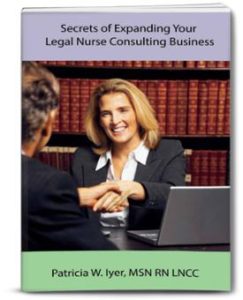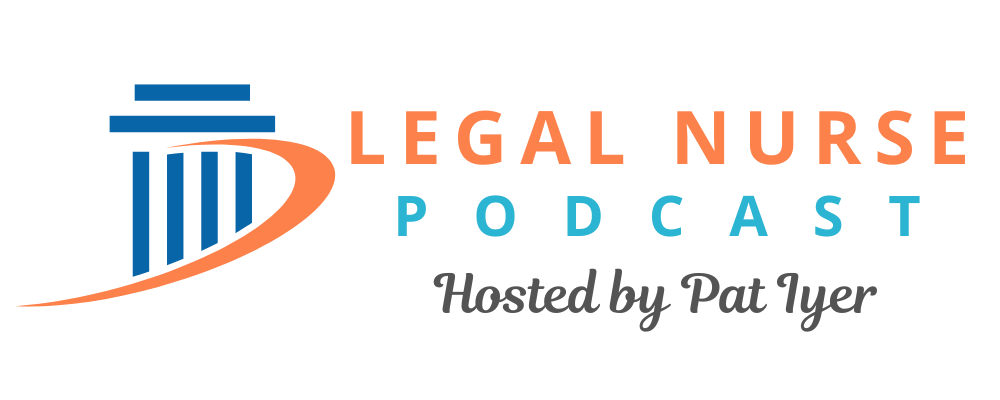498 Inhouse LNC spreads her wings – Chelsea Harris
Podcast: Play in new window | Download
Subscribe: Apple Podcasts | Email | RSS | https://podcast.legalnursebusiness.com/subscribe-to-podcast/

Have you ever considered working in-house as an LNC in a law firm? Chelsea Harris, who made the shift from clinical nursing to in-housework, provides a detailed description of what this involves.
She is the only in-house LNC in her firm, with three other LNCs working remotely. While she works on her own cases, she also organizes the work done by the other LNCs. She is, in addition, actively involved in trial prep work, finding expert witnesses, and interacting directly with clients. Now that live trials are beginning again, she looks forward to attending some.
Although Chelsea wondered how she would adjust to the huge differences in environment between a clinical setting and a law office, she finds the quiet atmosphere refreshing. She’d worried about the lack of activity and the increased necessity to focus; she has adjusted well. And she doesn’t miss the 12-hour shifts.
For Chelsea, working in-house has many other positive aspects. She likes knowing how each of the attorneys in the firm want their reports to be written. She is also able to, on a weekly basis, make everyone in the firm of the responsibilities she has to accomplish. This means that they can see how their needs fit into her schedule of pre-existing work.
For those who would like to work in an in-house environment, she acknowledges that these situations, being highly desirable, get filled very quickly. She suggests that if you want this kind of work, you need to persist, as she did. And she’s never regretted it.
Join me in this episode of Legal Nurse Podcast to learn about Inhouse LNC Role
- How can you get a position working as an LNC in a law firm?
- What responsibilities are involved in an in-house job in a legal firm?
- What challenges occur in a shift from clinical to in-house LNC work?
- How did the pandemic make finding expert witnesses difficult?
- What are the pros and cons of working in-house?
Related Product: Secrets of expanding your LNC business

You have set up your independent legal nurse consulting business – you’ve sent out some mailings, made some cold calls and visits, and gotten some responses. You wonder, “What else can I do to get business?” This text teaches you advanced secrets of marketing to attorneys. Expanding your legal nurse consulting business is easier with the wealth of ideas in this book. Demonstrate your expertise to attorneys. In an environment in which attorneys are bombarded with sales messages, the strategies in this book will set you well ahead of your competitors.
Learn how to share your knowledge with your prospects and clients through a blog on your website, presentations, exhibiting, books, videos, teleseminars and webinars. Have you heard of vlogs and blooks? This book will teach you how to use them.
Harness the power of the ideas in this book to build your legal nurse consulting practice – they work. Pat Iyer MSN RN LNCC has held nothing back. You’ll learn what made her legal nurse consulting business one of the most successful of its kind. Gain from her experiences, grab the ideas that will work for you, and watch your business take off.
Your Presenter
Chelsea has been practicing nursing for 10 years prior to joining the Poling team. She has extensive background in emergency nursing and previously worked in the busiest Level I Trauma Emergency Department in Ohio. Chelsea pursued additional training to obtain SANE certification and has served as a Sexual Assault Nurse Examiner in addition to her full-time position over the past 7 years. With a love for travel she embraced the idea of travel nursing and has now practiced as a registered nurse in several states, including the U.S. Virgin Islands. Chelsea prides herself in being a reliable, ethical healthcare provider advocating institutional policies, procedures and quality standards of care.
Connect with Chelsea at https://www.linkedin.com/in/chelseaharrisrn/
